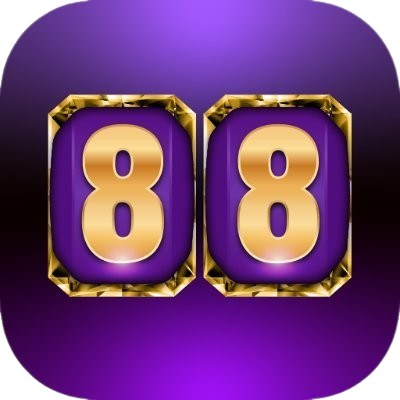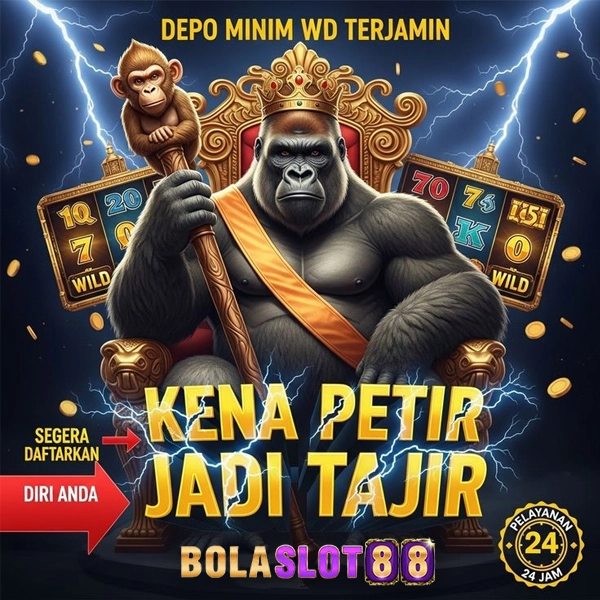Banyak Dikunjungi 188.889 Orang Mengunjungi Dalam 24 Jam Terakhir
Price:Rp 10,000
Original Price: Rp 100,000
90% off
Limited time sale
BOLASLOT88 : Link Situs Slot Depo 10K Gacor Via Qris Resmi Tanpa Potongan Terpercaya
BOLASLOT88 merupakan link situs slot depo 10k penyedia layanan metode deposit via qris resmi sekaligus terpercaya yang memiliki rekomendasi permainan mesin slot gacor gampang menang dengan miniminal deposit terjangkau mulai dari 10k atau 10 ribu rupiah tanpa potongan dengan jaminan jackpot maxwin setiap hari.
Star Seller
Star Sellers have an outstanding track record for providing a great customer experience—they consistently earned 5-star reviews, shipped orders on time, and replied quickly to any messages they received.
You can only make an offer when buying a single item
Star Seller. Penjual ini secara konsisten mendapatkan ulasan bintang 5, mengirim tepat waktu, dan membalas dengan cepat setiap pesan yang mereka terima.
Highlights
Slot Depo 10K dikenal sebagai link situs slot gacor terpercaya yang menyediakan layanan metode deposit via qris resmi sekaligus menawarkan rekomendasi permainan mesin slot gacor gampang menang dengan miniminal deposit terjangkau mulai dari 10k atau 10 ribu rupiah tanpa potongan dijamin jackpot maxwin. Jika Anda bingung mencari situs slot depo 10k tergacor, kini BOLASLOT88 sudah menjadi pilihan terbaik dengan menawarkan pengalaman bermain slot qris 10k yang memiliki rtp live akurat sehingga seluruh pemain bisa dapat peluang menang besar hanya dengan modal terjangkau. Menjadi tempat taruhan online paling dicari banyak peminat, situs slot depo 10k kini semakin mudah dengan tersedinya layanan metode deposit 10 ribu via qris dengan proses super cepat dan aman tinggal scan barcode hanya butuh waktu 1 menit saldo langsung masuk. Hanya cukup modal receh 10000 atau 10rb, seluruh pemain bisa menikmati berbagai koleksi permainan slot qris 10k resmi di situs BOLASLOT88 dengan peluang menang besar tanpa batas.
Kini BOLASLOT88 hadir menjadi pilihan tepat yang menyediakan link depo 10k sebagai akses bermain game slot gacor gampang menang dengan peluang jackpot maxwin tanpa batas hanya dengan modal terjangkau. Dilengkapi dengan fitur deposit 10k atau 10 ribu pakai qris, di slot qris resmi semua dibuat jadi lebih mudah, cepat dan aman tinggal scan barcode qris, saldo akan langsung masuk secara otomatis tanpa ribet dan bisa langsung nikmati permainan bermain slot depo qris 10k tanpa potongan setiap saat. Selain peluang kemenangan tinggi, slot depo via qris 10k sering dicari para slotter di Indonesia karena menyediakan layanan metode deposit paling mudah lainnya seperti via Ovo, Dana, Pulsa Tanpa Potongan ( Telkomsel, Indosat dan XL ) serta transfer Bank resmi. Sehingga seluruh transaksi dan data para pemain selalu terjaga karena situs BOLASLOT88 sudah memiliki lisensi resmi sebagai link slot gacor deposit 10k gampang menang untuk memudahkan pemain peroleh kemenangan besar tanpa potongan apapun. Daftar akun vip gacor Anda sekarang di slot depo 10k dan nikmati pengalaman bermain game slot qris gacor resmi bersama BOLASLOT88 cuma cukup modal 10k atau 10 ribu rupiah, seluruh pemain sudah bisa nikmati berbagai pilihan permainan slot 10k dengan peluang gampang menang setiap hari.
Apa itu BOLASLOT88?
BOLASLOT88 merupakan link situs slot depo 10k penyedia layanan metode deposit via qris resmi sekaligus terpercaya yang memiliki rekomendasi permainan mesin slot gacor gampang menang dengan miniminal deposit terjangkau mulai dari 10k atau 10 ribu rupiah tanpa potongan dengan jaminan jackpot maxwin setiap hari.
Apakah deposit 10K berlaku untuk semua provider slot?
Ya, saldo dari deposit 10K bisa digunakan untuk bermain di hampir semua provider slot yang tersedia di BOLASLOT88, kecuali jika ada game tertentu yang memiliki syarat minimal bet khusus.
Metode pembayaran apa saja yang mendukung depo 10K?
BOLASLOT88 menyediakan beberapa metode deposit cepat dan aman, seperti transfer bank, e-wallet (Dana, Ovo, Gopay, LinkAja ), Qris Resmi, Pulsa Tanpa Potongan ( Telkomsel, Indosat & XL ) dan metode pembayaran digital lain yang tersedia pada menu deposit.
Berapa lama proses deposit 10K diproses?
Biasanya hanya 1–2 menit. Jika sistem sedang padat, Anda dapat menghubungi Customer Service BOLASLOT88 untuk bantuan.
Apakah aman bermain slot depo 10K di BOLASLOT88?
Aman. BOLASLOT88 menggunakan sistem keamanan terenkripsi serta bekerja sama dengan provider resmi untuk memastikan permainan fair dan transaksi terlindungi.
Apakah depo 10K cocok untuk pemula?
Sangat cocok. Modal kecil memungkinkan belajar pola slot, mencoba strategi, dan tetap berpeluang menang besar.
Silakan periksa link resmi slot depo 10k situs BOLASLOT88 disini:
⚠️Waspada Terhadap Web Phising Mengatasnamakan Situs BOLASLOT88
Dengan kepopulerannya situs BOLASLOT88, kini banyak sekali pihak yang tidak bertanggung jawab mencoba memanfaatkan nama resmi untuk membuat situs palsu atau phising. Tujuan mereka, biasanya untuk mencuri data akun, password, atau informasi finansial.
SLOT DEPO 10K Proteksi Pembelian
Berbelanja dengan percaya diri di BOLASLOT88 dan
mengetahui jika terjadi kesalahan pada pesanan
Anda, kami siap membantu Anda untuk semua
pembelian yang memenuhi syarat —
see program terms
Main slot depo 10 ribu di BOLASLOT88 itu bikin nagih. Provider lengkap, server stabil, dan free spin sering muncul. Modal kecil pun bisa cuan besar.
BOLASLOT88 itu situs pertama yang saya coba pakai modal depo 10k dan langsung profit. Pola gacornya jelas, RTP-nya update, dan nggak pernah delay waktu withdraw. Recommended banget.
Modal kecil nggak jadi masalah. Saya depo 10K saja sudah bisa main lama karena slotnya gacor. Paling suka main slot qris di BOLASLOT88 karena sering kasih maxwin. Withdraw juga cuma hitungan menit.
Awalnya coba-coba depo 10 ribu pakai qris di BOLASLOT88, ternyata enak banget mainnya. Deposit masuk cepat, gamenya ringan, dan dua kali spin langsung dapat scatter. Mantap, rekomendasi banget buat pemula!

This seller usually responds within a few hours.
Speedy replies Has a history of replying to messages quickly.
Rave reviews Average review rating is 4.8 or higher.
| Nama Situs | BOLASLOT88 |
| Link Resmi | SLOT DEPO 10K, SLOT QRIS, SLOT VIA QRIS, SLOT DEPOSIT QRIS, SLOT DEPO 10K VIA QRIS |
| Jenis Game | Slot Online, Casino Online, Sportsbook, Tembak Ikan, Slot88 |
| Game Gacor Hari Ini | Gates Of Olympus, Mahjong Ways 2, Starlight Princess, Lucky Neko |
| Minimal Deposit | Rp 10.000 |
| Minimal Withdraw | Rp 50.000 |
| Metode Transaksi | Transfer Bank Lokal, E-Wallet ( Ovo, Dana, Gopay, LinkAja ), Qris, Pulsa Tanpa Potongan ( Telkomsel, Indosat dan XL ) |
| Perkiraan Waktu Proses | 1 - 2 Menit |
| Rating | - 188.8K ulasan |




